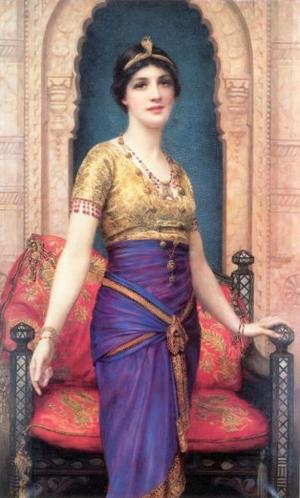The Joy of Life: (La joie de vivre)
Nonfiction, Religion & Spirituality, New Age, History, Fiction & Literature| Author: | Emile Zola | ISBN: | 9781465618450 |
| Publisher: | Library of Alexandria | Publication: | March 8, 2015 |
| Imprint: | Language: | English |
| Author: | Emile Zola |
| ISBN: | 9781465618450 |
| Publisher: | Library of Alexandria |
| Publication: | March 8, 2015 |
| Imprint: | |
| Language: | English |
When the cuckoo-clock in the dining-room struck six, Chanteau lost all hope. He rose with a painful effort from the arm-chair in which he was sitting, warming his heavy, gouty legs before a coke fire. Ever since two o'clock he had been awaiting the arrival of Madame Chanteau, who, after five weeks' absence, was to-day expected to bring from Paris their little cousin, Pauline Quenu, an orphan girl, ten years of age, whose guardianship they had undertaken. 'I can't understand it at all, Véronique,' he said, opening the kitchen-door. 'Some accident must have happened to them.' The cook, a tall stout woman of five-and-thirty, with hands like a man's and a face like a gendarme's, was just removing from the fire a leg of mutton, which seemed in imminent danger of being over-done. She did not express her irritation in words, but the pallor of her usually ruddy cheeks betokened her displeasure. 'Madame has, no doubt, stayed in Paris,' she said curtly, 'looking after that endless business which is putting us all topsy-turvy.' 'No! no!' answered Chanteau. 'The letter we had yesterday evening said that the little girl's affairs were completely settled. Madame was to arrive this morning at Caen, where she intended making a short stay to see Davoine. At one o'clock she was to take the train again; at two she would alight at Bayeux; at three, old Malivoire's coach would put her down at Arromanches. Even if Malivoire wasn't ready to start at once, Madame ought to have been here by four o'clock, or by half-past at the latest. There are scarcely six miles from Arromanches to Bonneville.' The cook kept her eyes fixed on the joint, and only shook her head while these calculations were thrown at her. After some little hesitation Chanteau added: 'I think you had better go to the corner of the road and look if you can see anything of them, Véronique.' She glared at him, growing still paler with suppressed anger. 'Why? What for? Monsieur Lazare is already out there, getting drenched in looking for them: and what's the good of my going and getting wet through also?' 'The truth is,' murmured Chanteau, softly, 'that I am beginning to feel a little uneasy about my son as well. He ought to have been back by this time. What can he have been doing out on the road for the last hour?' Without vouchsafing any answer Véronique took from a nail an old black woollen shawl, which she threw over her head and shoulders. Then, as she saw her master following her into the passage, she said to him, rather snappishly: 'Go back to your fire, if you don't want to be bellowing with pain to-morrow.'
When the cuckoo-clock in the dining-room struck six, Chanteau lost all hope. He rose with a painful effort from the arm-chair in which he was sitting, warming his heavy, gouty legs before a coke fire. Ever since two o'clock he had been awaiting the arrival of Madame Chanteau, who, after five weeks' absence, was to-day expected to bring from Paris their little cousin, Pauline Quenu, an orphan girl, ten years of age, whose guardianship they had undertaken. 'I can't understand it at all, Véronique,' he said, opening the kitchen-door. 'Some accident must have happened to them.' The cook, a tall stout woman of five-and-thirty, with hands like a man's and a face like a gendarme's, was just removing from the fire a leg of mutton, which seemed in imminent danger of being over-done. She did not express her irritation in words, but the pallor of her usually ruddy cheeks betokened her displeasure. 'Madame has, no doubt, stayed in Paris,' she said curtly, 'looking after that endless business which is putting us all topsy-turvy.' 'No! no!' answered Chanteau. 'The letter we had yesterday evening said that the little girl's affairs were completely settled. Madame was to arrive this morning at Caen, where she intended making a short stay to see Davoine. At one o'clock she was to take the train again; at two she would alight at Bayeux; at three, old Malivoire's coach would put her down at Arromanches. Even if Malivoire wasn't ready to start at once, Madame ought to have been here by four o'clock, or by half-past at the latest. There are scarcely six miles from Arromanches to Bonneville.' The cook kept her eyes fixed on the joint, and only shook her head while these calculations were thrown at her. After some little hesitation Chanteau added: 'I think you had better go to the corner of the road and look if you can see anything of them, Véronique.' She glared at him, growing still paler with suppressed anger. 'Why? What for? Monsieur Lazare is already out there, getting drenched in looking for them: and what's the good of my going and getting wet through also?' 'The truth is,' murmured Chanteau, softly, 'that I am beginning to feel a little uneasy about my son as well. He ought to have been back by this time. What can he have been doing out on the road for the last hour?' Without vouchsafing any answer Véronique took from a nail an old black woollen shawl, which she threw over her head and shoulders. Then, as she saw her master following her into the passage, she said to him, rather snappishly: 'Go back to your fire, if you don't want to be bellowing with pain to-morrow.'















